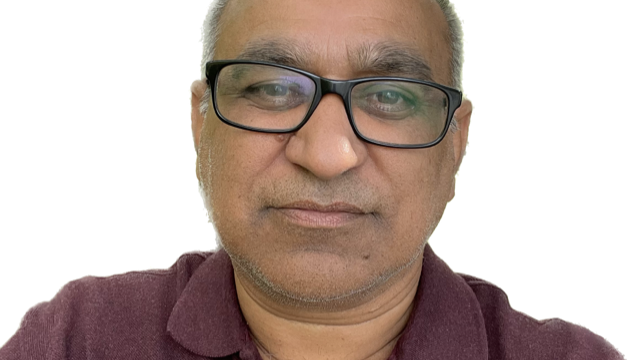Facing the Zeitgeist of digitalization, Bill Gates states that “the future of money is digital currency.” In fact, in the wake of Bitcoin – which was the first cryptocurrency traded – the number of cryptocurrencies has increased considerably. Nowadays, there are over 5,000 cryptocurrencies traded at over 18,000 exchanges around the world. Transparency and 24-hour accessibility are the main advantages of cryptocurrencies. The transactions of cryptocurrencies are all recorded on the open public ledger called the Blockchain. This decentralized mechanism gives cryptocurrencies an unparalleled transparency. The technology behind Blockchain is revolutionary, but understanding and making use of this technology has been shown to be challenging, especially for professionals outside Computer Sciences disciplines.
There are four issues that my research addresses: First, as of January 2020 the overall market capitalization in the cryptocurrency market is more than USD 200 Billion US-dollars. Recent research documents that cryptocurrency exchanges have a chance of getting hacked in excess of 70%. Given that the market capitalization of Bitcoin corresponds to more than USD 9,000, the losses due to hacking incidents sum up to more than USD 10 billion which shows the enormous societal impact of this criminal activity. My first research study addresses the question how the uncertainty in these new innovative financial markets is affected by hacking incidents.
Second, Initial Coin Offering (ICO) is a new crowdfunding method for companies wishing to receive funding for a business project. After the launch of Mastercoin – which is now called Omni – many ICOs are already issued rising over USD 25 Billion. Due to many positive sides of ICOs like no entry constraints, scope for exponential growth, no geographical barriers, and easy validation compared to Initial Public Offerings (IPOs), many investors are attracted to use it for financing their business projects. On the other hand, ICOs happen to be subject to scams and frauds. According to a research done by Bloomberg, 80% of ICOs launched in the year 2017 were identified as scam. Fraudsters typically lure victims on to their websites through cold calling or advertising on social media with the promise of “getting rich quickly”. The losses due to failed ICOs correspond to circa USD 200 Billion US-dollar. Hence, the second research study addresses the question whether ICO scams are predictable. This study is conducted together with doctoral student Niranjan Sapkota who is the expert in ICOs and digital financial markets.
Third, another difference between traditional IPO and ICO can be seen from an investor’s point of view: While investing in a company from your country is straight forward, there is typically an additional legal procedure if an investor wants to invest in a foreign company implying that the investor will most likely need to utilize the services of a broker to acquire stocks. Using ICOs, on the other hand, an investor can buy any utility token of any company from any country without facing any tax burden. Compared to stocks, however, utility tokens do not grant ownership of the project or the company, respectively. In this regard, the price or value given to the utility token is derived mostly from speculation, and the merry-go-round of price appreciation continues as long as there is a third party willing to acquire the utility token at a higher price. Interestingly, despite of the increasing interest in tokens as an investment opportunity, there is no model available for pricing these new digital financial assets. The purpose of my third research study is, therefore, to provide a pricing model for this new digital assets, that are, utility tokens. This research study will be conducted together with doctoral student Niranjan Sapkota as well.
Fourth, less than 50 per cent of ICOs are successful in raising funds since 2017. By the end of 2019 there are more than 5000 published ICO projects successfully raising over more than USD 27 Billion. Due to the fact that many ICOs turned out to be scam, investors have nowadays (understandably) some trust issues and are reluctant on investing. As a consequence, only selective ICOs successfully raise funds. The dilemma is here that some scam ICOs were able to raise funds while some legitimate ICOs failed to do so. Hence, the purpose of my fourth research study is to identify how to run a successful ICO. Doctoral student Niranjan Sapkota is also involved in this study. Right now he is creating a huge (hand-collected) database that we use in this study. In teamwork we acquired in November 2019 external funding from the Foundation for Economic Education. We use that funding for both his doctoral thesis project and my tenure-track research. It’s a win/win situation and we both are excited about our common work.
Summing up, the goal of my tenure-track related research is to provide novel evidence on both the risks and opportunities of new innovative digital financial markets. My research team has accomplished quite much on the way. So far we published four original scientific articles related to research in applied Financial Technology (FinTech). Moreover, our study entitled “Predicting Cryptocurrency Defaults” received enormous media attention in U.S. and was last year highlighted in the recognized U.S. business magazine “Forbes”. We also have considerable media coverage of plenty websites specialized in Blockchain and Cryptocurrencies such as the popular website “Cointelegraph”. I want that my team addresses many issues related to FinTech. So far we addressed some issues in crypto-pricing but in the future our research will cover much more issues. In this regard, I am very happy to have Niranjan Sapkota in the team. He is a very smart guy and always provides valuable input.




